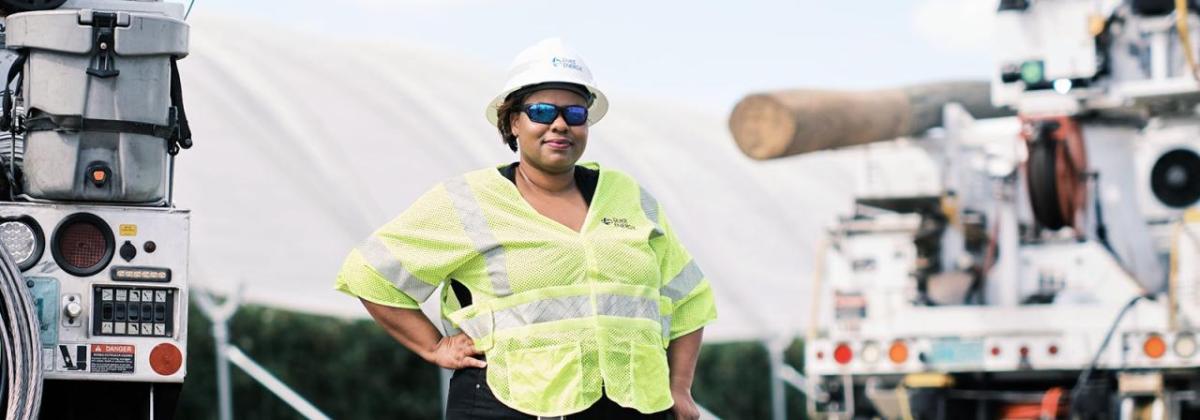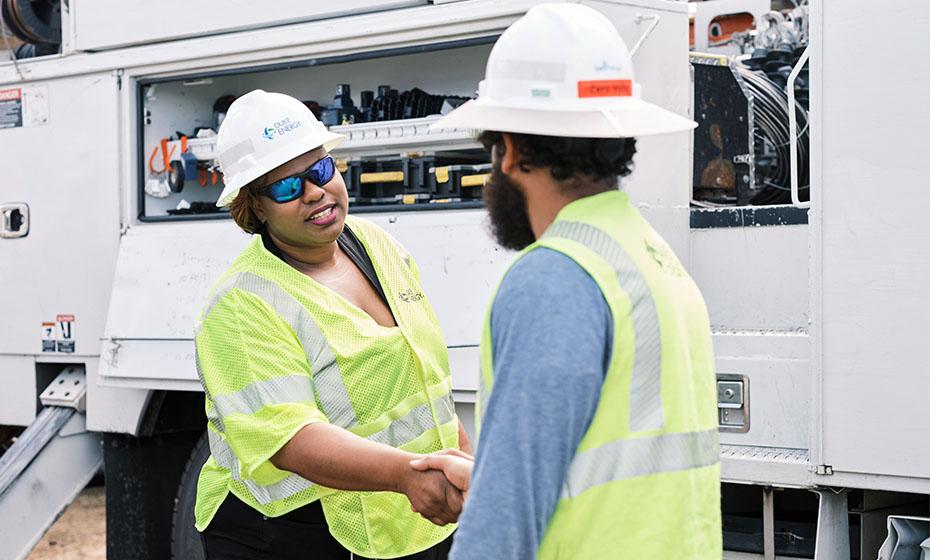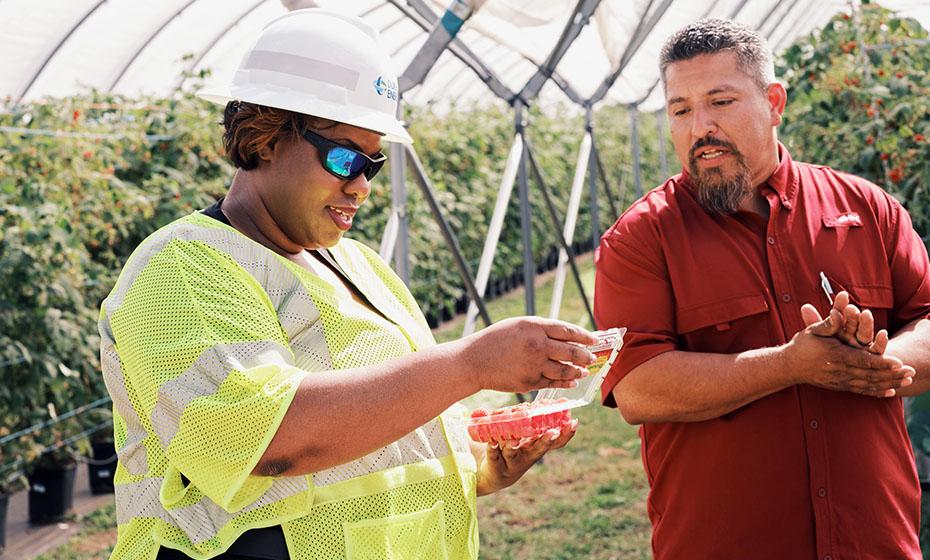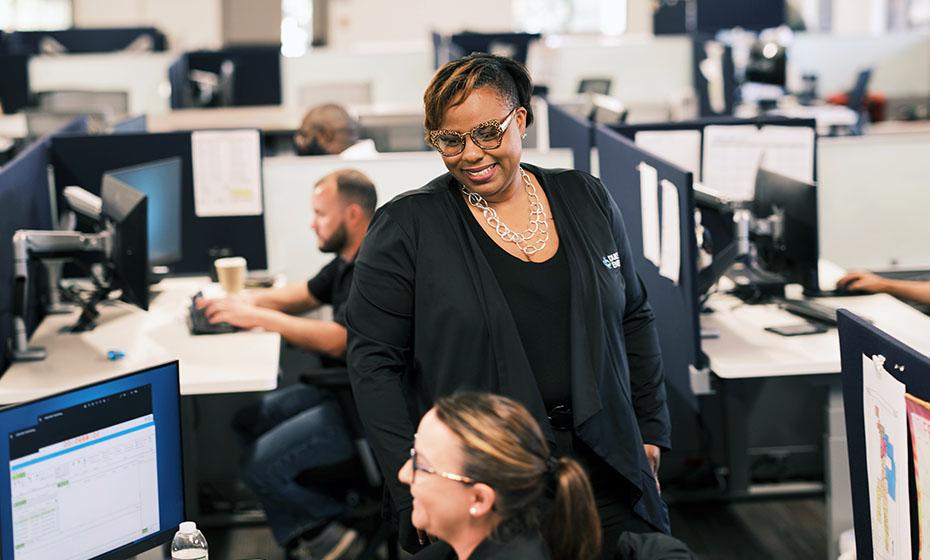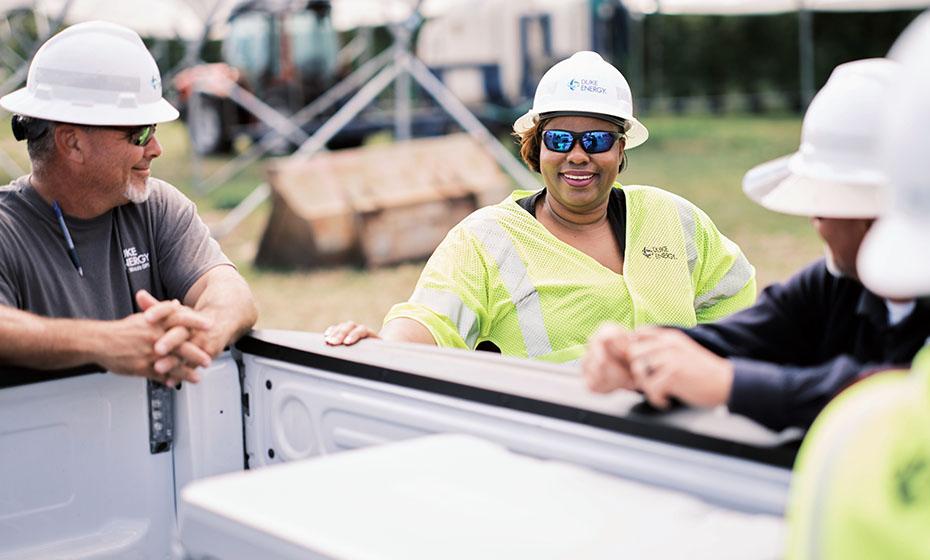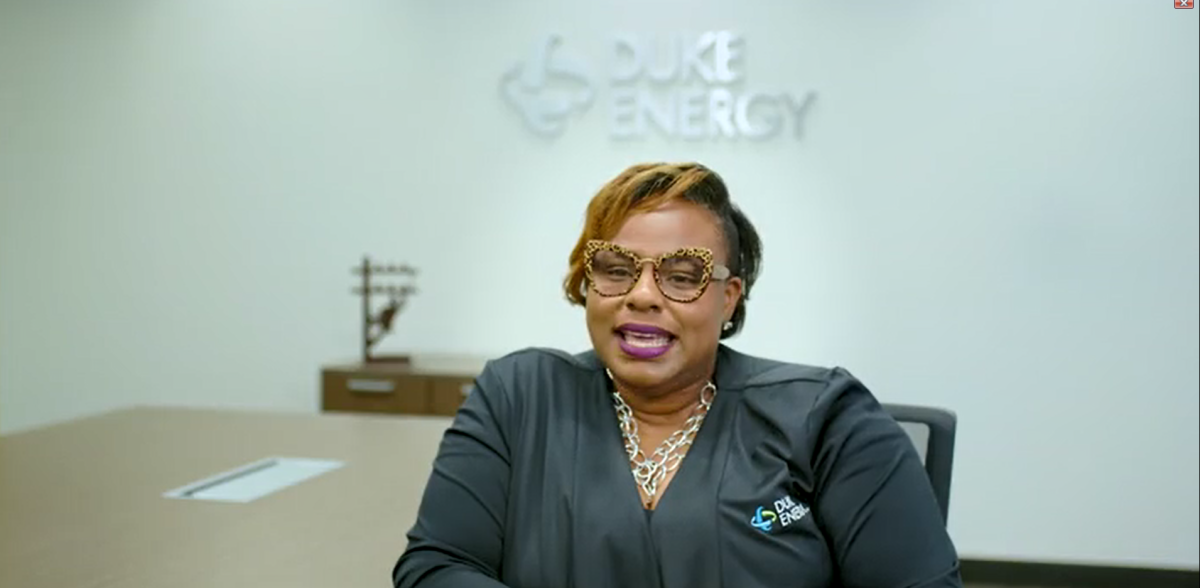Duke Energy's LaQuitta Ghent Makes Sure the Grid Is Delivering for Customers
Meet one of the women at Duke Energy helping shape the future of energy
On an 80-degree day in Haines City, Fla., LaQuitta Ghent’s truck pulled up to a buzzing work site at a berry farm. A white hard hat and neon safety vest brightened up her otherwise all-black attire.
The farm is expanding, a line worker explained, so Duke Energy was installing a transformer bank and other infrastructure to meet the growing power demand. Amid crops of blueberries, strawberries and raspberries, Ghent, who is vice president of operations in south-central Florida, came to ensure her team had what they needed to get the job done safely and efficiently.
“It’s the kind of leader she is,” said Bruce Hardy, director of operations in Lake Wales and Highlands. “She cares about her people.”
The people Ghent cares about also include Duke Energy customers – there are 1.9 million in Florida. Her team maintains and improves the electric grid to make sure they have service.
This includes preparing the grid to integrate more renewable resources while maintaining reliability and affordability for a growing population base. As the company works toward its goal of net-zero carbon emissions by 2050, more of the energy it delivers in Florida is being generated by solar, including 700 megawatts (MW) of capacity added from 2018 through 2022, and another 750 MW planned through 2024.
When Hardy met Ghent in 2006, she was fresh out of Florida State University. He forecast a future as bright as her personality.
“I knew she was going places,” Hardy said of the electrical engineer who was hired to design subdivisions in the Orlando area.
Today, Ghent leads a team of more than 250 in south-central Florida. From lineworkers to engineers and administrative staff, their responsibilities are as vast as their five-county service area – a message she shares when she meets with student groups and community organizations every chance she gets.
“Part of my role is community-facing,” she said, “Giving back to the community is important so I use that platform to expose students to the utility industry. Hopefully, I can be a role model.”
When she talks with them, she asks if they know what Duke Energy is.
“I usually get something like, ‘Yeah, we see the trucks.’ Or, ‘You keep the lights on,’ which is true. But I also like to explain that we also have business analysts, nurses, accountants, people who work in communications and so forth. And the students are always wowed by the diversity of roles within the company.”
Ghent herself has held numerous roles in her 17-year career at Duke Energy Florida (and predecessor Progress Energy), primarily in the distribution organization working in jobs including engineering, power quality, reliability and lighting.
Ghent’s team is responsible for keeping the grid operational along with construction and maintenance, making repairs and restoring outages caused by storms.
Growth and increased demand in Florida have created a need to transform the system. Maintaining and transforming the grid and delivering reliable and affordable electricity are critical to the economic prosperity of the state.
Customer satisfaction is another area of focus, she said, “which is huge. We want to make sure our customers know they are important to us. So we all rally together to make sure they have the power they need to live their lives. For instance, every person in Duke Energy Florida has a storm role, and they understand the responsibility that comes with that.”
As a longtime Florida resident, Ghent takes that responsibility to heart.
“My kids go to school here,” she said. “I also have a mother-in-law and brother-in-law on dialysis. Their clinic needs electricity to help people. So for me, I try to make it personal that we provide safe and reliable power.”
Ghent lives in Bartow, Fla., with her husband, Marcus, a basketball coach and school safety guardian, and two children, Maranda and Marcus Jr. “They keep us pretty busy,” she said, laughing.
“Marcus and I are also really lucky to have a great support system – my in-laws, my parents – they help us a lot to make sure we can also thrive in our careers.”
It’s a balancing act, no doubt about it, and she is thankful no one told her she couldn’t do it all.
“I’d rather tell someone I can’t do something versus hearing, ‘Well, she's a mother. She's a wife. She's not able to take on that responsibility.’ So, I’m thankful to have the respect of an organization that’s afforded me so many opportunities to show my children that you can do anything that you put your mind to.”
View original content here

